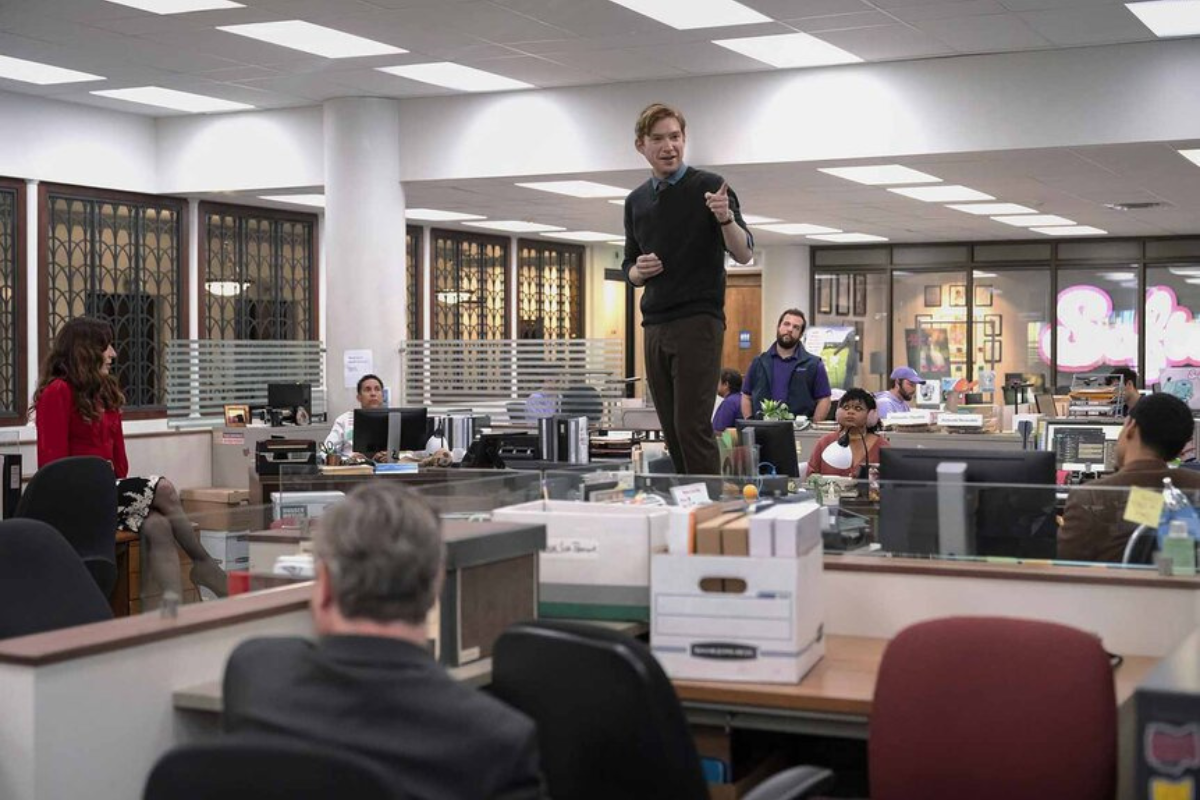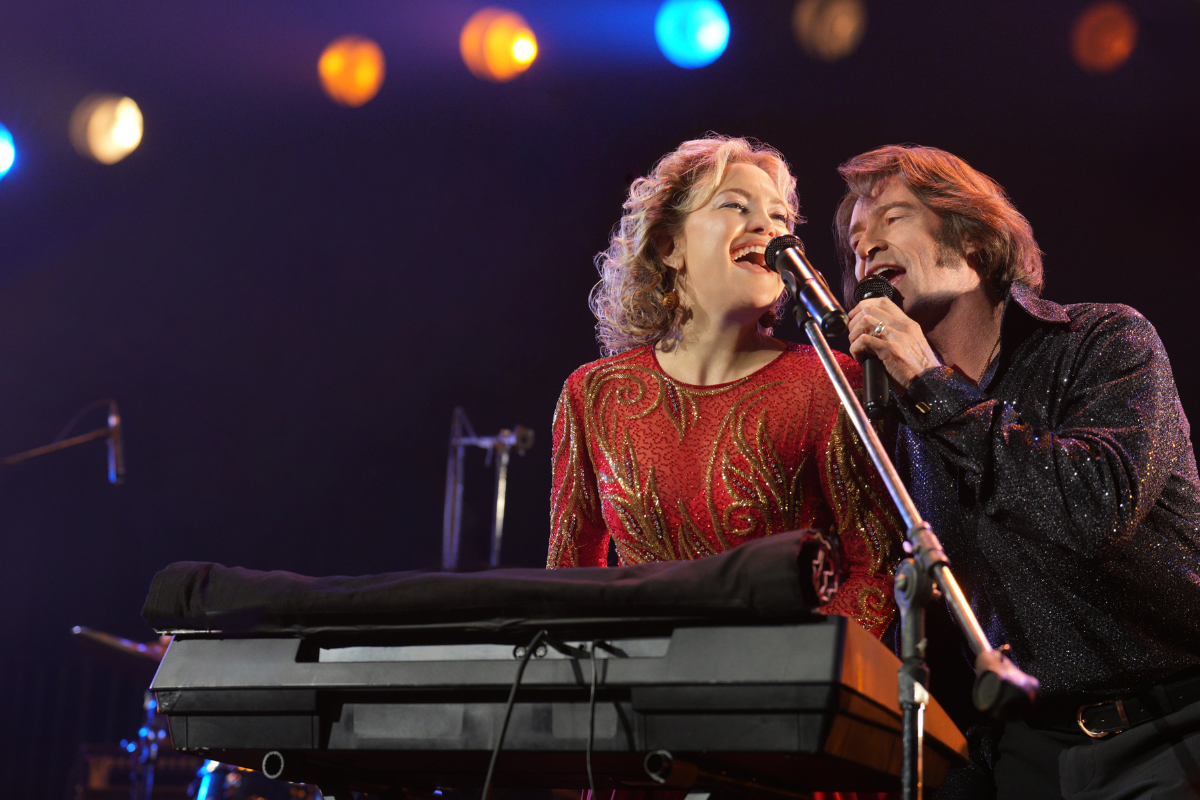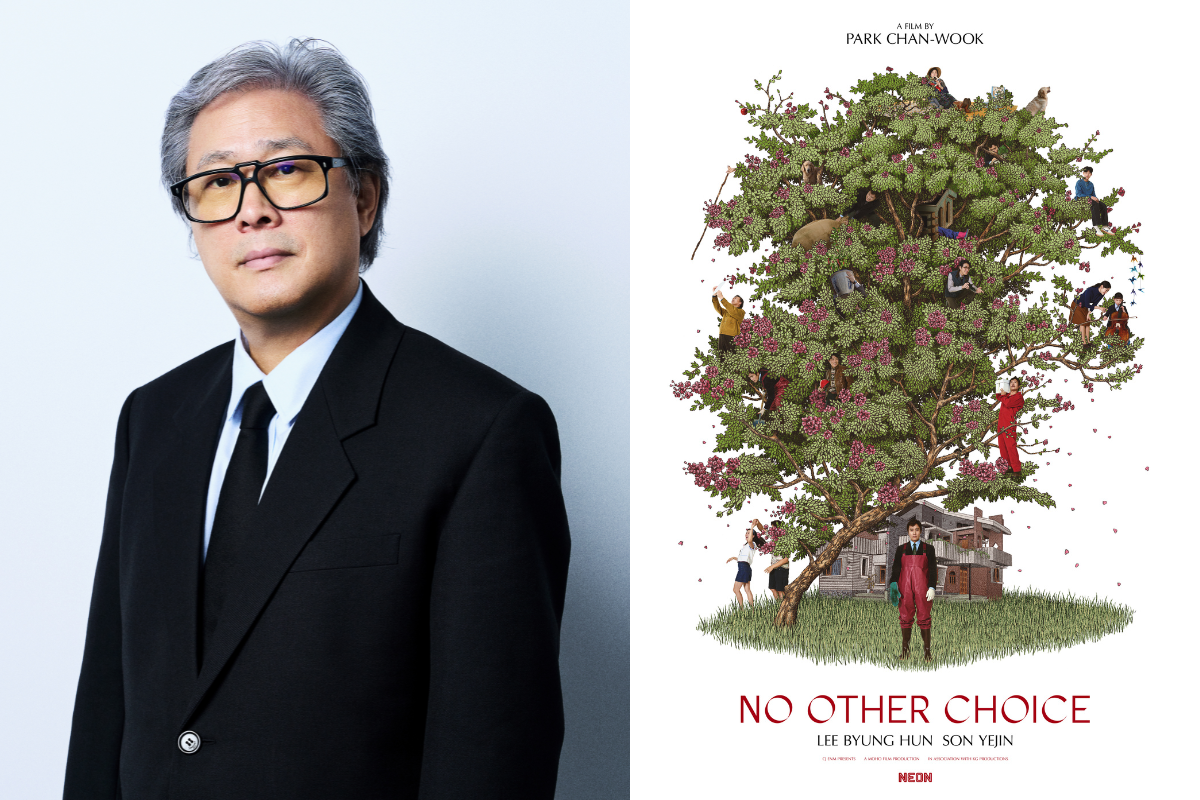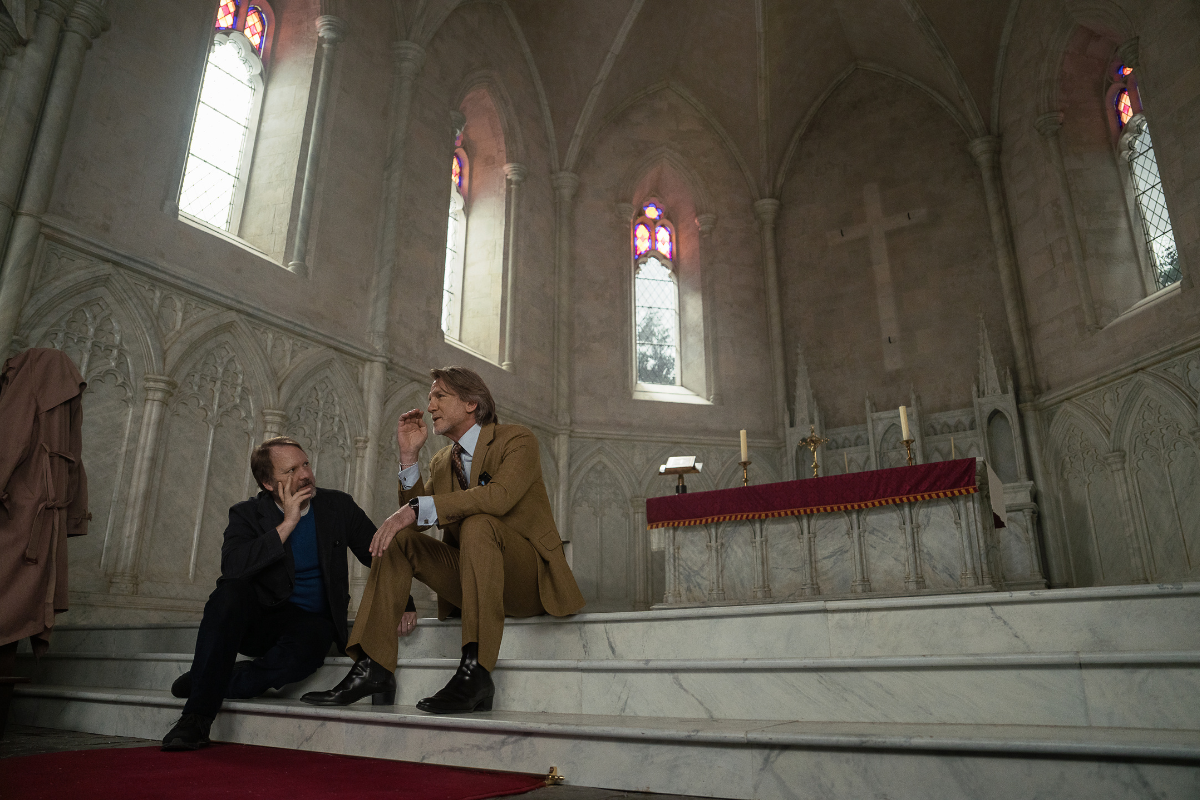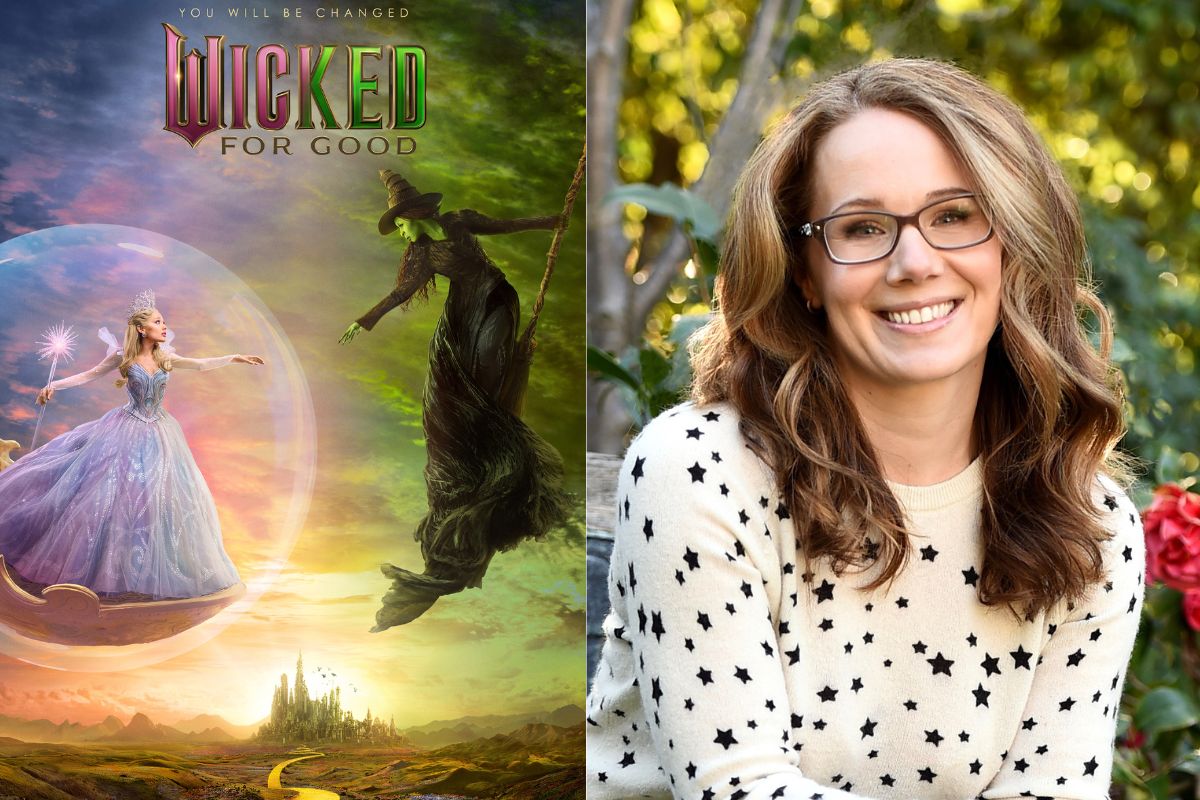Creating Space for Neurodiversity On Screen with ‘As We See It’ Creator Jason Katims
‘As We See It’ creator, writer, and showrunner Jason Katims shares with Script about his personal connection to the show’s subject matter, his commitment to telling neurodiverse stories authentically, and his writing journey working on character-driven shows.
As We See It follows Jack (Rick Glassman), Harrison (Albert Rutecki), and Violet (Sue Ann Pien), twentysomething roommates on the autism spectrum, as they strive to get and keep jobs, make friends, fall in love, and navigate a world that eludes them. With the help of their families, aide, and sometimes even each other, these roommates experience setbacks and celebrate triumphs on their own unique journeys towards independence and acceptance. Series stars Glassman, Rutecki, and Pien all identify as living on the autism spectrum. The series also stars Sosie Bacon as their aide Mandy, Chris Pang as Violet’s brother Van, and Joe Mantegna as Jack’s father Lou.
A show that pulls at your heartstrings and has you coming back for more. Jason Katims does it again, drawing you into the world and life of his well-thought-out characters in his new show As We See It. It's moving, it's shocking, and it can be relatable but more than anything else it brings a well-balanced understanding of the neurodiverse community.
I had the utmost honor of speaking with Jason Katims about his personal connection to the show's subject matter, his commitment to telling neurodiverse stories authentically, and his writing journey working on character-driven shows.
This interview has been edited for content and clarity.
Sadie Dean: How did the original Israeli series initially get on your radar and what about it clicked for you to adapt it for American television?
Jason Katims: Before I knew about the series, I was already thinking about this subject matter. I have a son who's on the spectrum. And a few years ago, when this first came up, he was just getting to be a young adult, and I was looking at and thinking of what does his future look like? And so it was on my mind. I felt like there's a lot of stuff that we see and read and hear about childhood and adolescence on the spectrum, but less so on adulthood. So, it was something that was very much on my mind, for very personal reasons. And then the format was sent to me, the first three episodes were the only episodes that were available at the time, and usually, you hear about a format, and it sounds like it could be interesting, and then, you might get to it at some point. But this one the subject matter was so incredibly compelling to me, because of what I just said, and I literally just watched them back to back to back immediately. And I said, ‘This is the show that I want to do next.’ The show is really beautiful. There was something I could bring to it. There was a storyline in Parenthood where I looked at this boy who's on the spectrum, who eventually in the series became an adolescent on the spectrum. And in a way, I felt like this was a way of continuing to tell that story.
Sadie: I love that you're exploring that next chapter, because like you said, we don't see that. I feel like Max could be Jack in a few years.
Jason: Right? Yeah. [laughs] There's such reason to explore, because there's a lot of misconceptions about what it means to be on the spectrum still, and I think just putting that story out there and telling that story just helps demystify what it means. And at the same time, embrace the mystery of it, because it's called a spectrum for a reason; these three characters are very, very different from each other, as many people as there are on the spectrum there are so many different kinds of autism. It has been a very rich experience to dive in and to tell the story.
Sadie: There's definitely that delicate approach and exploring those characters and their inner and outer experiences of living in their shoes and how we would observe them versus what their inner circle is seeing. It definitely grounds it. Building out these three main characters who are on the spectrum, and building their season arcs for them in that first season we see you heighten their self-worth and their expectations. When you're approaching these characters specifically, did you have in mind where they were on the spectrum and their season arcs?
Jason: It was very interesting I would say, undertaking from a showrunner's point of a view and from a storyteller's point of view, because I felt a deep sense of responsibility to get the story right and to tell the story authentically and make it feel real. I didn't want to screw it up. I didn't want it to feel like a fake version of it. And I definitely didn't want to make it feel like we were telling the story at the expense of the characters - that we're laughing at them, or we were looking at them - I wanted it to be through their eyes as we see it. In order to do that, was to not have them have success and triumph, for the sake of having success and triumph, because that plays really well. It was always like a one step forward, two steps back, or maybe sometimes it's two steps forward, one step back. But all of these things are so important. And so, in order to do that, it was about finding those moments that are seemingly small, but plays so big. To me, my favorite example of it is in the first episode, when Harrison gets out of his apartment and walks down the street. And it's like, you wouldn't think that would be an episode arc for a character, but it was, and it worked. We very consciously chose that as one moment, where we literally went into his head. He opens that door, and suddenly we hear the world, the way he hears it, we see the world the way he sees it. And then we can see, ‘Oh, that's what it could be like to feel like when sounds feel louder than they are, and when things that are out there around you take over in a way and make it hard for you to do that.’
A lot of it was about how do we make the stories small, but very rich and moving. Small stories can be big. That's where we started from and then we tried to find the journeys that really made sense for them. And it felt believable and didn't feel like we were pushing it and I think when you watch the show, one of the things that is, I think has been for me and has been very successful, is you’re little bit on edge because is Jack going to say something at work that gets him fired and is Violet going to do something that inadvertently puts her in danger? Is Harrison going to go outside and it's not going to go well and is it going to keep him in his room for another six months before he steps out again? And that to me, becomes the stakes, that's what they really are if you're where those characters are in the world.
Sadie: It seems so simple, but it's really not and you're able to tap into those nuances that do seem so small but are so big in that world and be able to build off of that. You definitely have that immediate attachment to these three characters.
Jason: The arc of Harrison putting on a suit, it starts with setting up early in the season that his sister is going to have a graduation party, and then there's a whole episode or two, about whether or not he's going to put on a suit. And then when he gets there, and this unbearable thing happens that he learns about when his whole life becomes untethered, because he's losing his family when he has that meltdown, the first thing he does is rips that fucking thing off. So, it’s like, putting on a suit is not a major storyline, usually in a show, but that is a real thing. What people wear, how the material feels on the skin to people is big, and the fact that you're supposed to look a certain way, because it's your sister's graduation, and you're supposed to do it to fit in, all these things are all real. And they're all happening. And so, it's basically taking a small idea like that, and feathering it through and really committing to that's actually going to be a throughline in your storytelling. And then, by doing that, it pays off, because we, as writers, have committed to it, and that allows the actors to commit to it, and then it becomes as big as any story you would tell. It just happens to be something that is small and nuanced, and something that would be true to what these characters are going through in their journey.
Sadie: It’s so rich with those details. And then you have the opposite, where you have, quote-unquote, normal people, whatever that is, but you have Mandy and Van, who are navigating this world with them, and how they're trying to find their own independence from that, but they can't. It’s difficult to separate yourself from that, because there's so much care and, you don't want them to fall off the rails. In writing those two characters, what was that process like in exploring their arcs?
Jason: One of the things I felt wanting to do my version of the show is I wanted to have this full story. I wanted to tell the story, not only about these three characters, but I wanted to tell the stories about like you're saying Van and Mandy and Lou and the people who are around them, who are supporting them, and what it's like. I do think that's a powerful part of the story. With Van, I love that brother-sister relationship so much, because I really relate to this story, it's very personal to me. Violet feels, 'Hey, I'm 25. I want autonomy. I want a boyfriend. I want to go out and have sex and I don't want my brother hassling me. My brother's taking my phone away, what the fuck is that?' And for Van, it's like, of course, he wants that for his sister. But he feels that his sister needs support and he doesn't want her to get into situations where she gets in over her head, that she gets into situations that could be hurtful to her. And it's that delicate balance between trying to help her have that autonomy she's seeking, but maybe it's going to take her longer to do it than it might be for other people. It's also important for him to learn sometimes when he's being overprotective when she is more ready than he thinks she is. What I loved about what we kind to in the end with Van is that Van ultimately really gets to this incredibly vulnerable place himself where he comes to the fact of how much he needs her as much as she needs him; that they have each other, which I find to be incredibly moving. Because, it's true, she is his family, she's his only family. And I find that to be really moving.
In the case of Mandy, one of the things about that storyline is, I've had with my son, over the years, there have been so many people that have crossed through in one way or another in his life, and by extension to my life, and my wife's life. Like, therapeutic aides and therapists and teachers, and on and on, and I have over time built up such an incredible admiration for those people. I'm in awe of them. I'm in awe of people who dedicate their lives to helping people in that way. I think they have incredible patience, incredible skill, and incredible heart to do it. And so I found myself just wanting to lean into the character of Mandy. I also found that it was very interesting and compelling, how complicated it was in that one way, she was there as their aide or their boss in a weird way. And in another way she was their peer, even a couple of years younger than them and their balance between being a peer and a friend, and an aide was really, I just think, a wonderful thing, especially when you have Sosie Bacon who's so amazing and hits all those beats and in such an incredible way. In particular, her relationship with Harrison I thought was so moving and beautiful. But then also the stuff with her and Violet, those scenes between them, it was such a fine line between, 'Wait, who's helping who in this scene?' [laughs] 'Who's the wise one here? Who's bringing the wisdom?'
It was just a joy to tell these stories, because we were creating all of these characters equally even though the three leads are the lens through which we see the show. I think we also saw Lou and Mandy, and Van and gave them equal dignity and respect and their own lives that they were dealing with. Lou dealing with that ultimate thing faced with his mortality, and especially in a situation where you're faced at a time that you don't know that your son is going to be OK without you and what is that like? And it's a wrenching storyline.
Sadie: Yeah, it really is. And again, it's such a simple idea, and there's just so much to explore. With Mandy, you're rooting for her. You want her to go off to school and live her best life, but you also at the same time, you don't want her to leave. They need her and she needs them.
Jason: Yeah, exactly. This is part of their journey, they're going and it becomes incredibly emotional for everybody. Everybody gets attached. The other thing about the show because you tend to talk about the show and it sounds heavy and intense, but I think it's so funny and delightful and fun to watch. And one of the great, I think, sources of humor is Mandy spinning plates - going from one to the other. [laughs] How to navigate all these different needs in one scene, and with three people that have no patience, and are not going to wait around, they're all going to come at you at once. And some of those things, are so much fun to watch, because it's just fun to watch her having to navigate all of that.
Sadie: When you were putting your writer's room together, what was the process like in terms of research of what is the spectrum, different types of spectrum, and did you have any consultants in the room or during that writing process in the first season?
Jason: Yeah, it was very important for us, as I said to try to tell this story as authentically as possible, and try to get it right. So we did lots of things. We actually had an advocate on set the whole time, who was there for the actors, but also the crew and the writers as well as our producers and everybody who was there every day on the set. We vetted the script with various places and organizations to make sure that we were getting it as right as possible. But we also wanted to embrace neurodiversity on both sides of the camera. We had a writer who identifies as being on the spectrum in the writer's room, also, our writer's assistant who was in the room the whole time, also identified as being on the spectrum. We also had people like myself, who had close connections to that world in the writer's room. So, it was very important to me in putting together a room where we really had a lot of people who had brought a lot of personal understanding of it. Not everybody had to because that's part of the writer's job is to research and learn. You want to have people coming from all different perspectives as well. And so when I was reading writers' work and when I was meeting with writers, I wanted to make sure that they first of all, had incredible compassion for the subject matter and interest and desire, and in some cases, personal connection to it, that was really important. But it was also really important that people were coming at it from different angles like I wanted to know that somebody was going to relate more to Jack, and somebody is going to relate to Harrison and Violet, etcetera. The show is very much an equally distributed ensemble, it's not like one character is bigger than the other. So, our room had to reflect that in a way. We're all there for all of the characters, but there are people who are particularly passionate about certain characters.
I've been around this for, at this point 25 years, I've been very close to this subject matter, there are things that I don't bring that perspective to. It's not like, 'OK then we're gonna break the story, then we're gonna send the script to somebody.' No, it's not like that. As the stories and the characters and the beats are being formed, there are people there to speak up when something doesn't feel right. And also, one thing that was great, too, is sometimes they would have different perspectives. It was able to tell me, as for many people that are on the spectrum, with different types of autism it's also good to have more than one person there to see it's not just something that's automatically true and correct. There are different perspectives.
Sadie: With your writing journey and career, you've worked on shows with very rich character dramas, like Friday Night Lights and Parenthood - you just go for the heartstrings, especially on this show, what's your attraction to writing these kinds of characters and exploring those voices? I'm curious, does it come from your playwriting background, and then just being able to evolve it into a TV series?
Jason: I mean, I think so. I think it started with playwriting. The first show that I worked on was My So-Called Life, and I'd never been on a television set before I did that show, or in a writer's room or anything. And I got to work with Winnie Holzman and Marshall Herskovitz. And it was like, essentially, it was my graduate school. It dispensed with so many myths I had about what television is, because the way that they approach story, it's actually exactly as I've sort of talked about how we broke the story, they will literally say, 'What's the least amount of story we can tell in this episode?' They were not interested in plowing through story, they were interested in observing life and if you blow up too much story, you don't have time to deal with nuances. I was really lucky to get to learn from Winnie because I was in the trenches with her, as she was making that incredible show. And I just I was there helping any way I could, but it was definitely her show, every word of it. But I was really lucky that that was the path that sent me on.
I feel very lucky that these are the stories I get to tell and then at some point it becomes, those are simply the stories that I tell, you know? Going at these characters from the inside out is the way that I sort of always look at it and we're always asking ourselves in the room, 'What would really happen?' Like, let's not make this happen in the scene because we want it to happen. Let's not have the character who's not the main character in that particular scene say something so it can get the character that we want to do something. You know what I mean? Let's observe everybody, like the way it would really be. And, I love this show. When you talk about the show, it might be heavy when you first hear about it. But this show it's so delightful. There's so much humor in it, it makes you laugh. The thing that I love most is when you find yourself, and I love this when I watch things, I love when I'm like laughing and then suddenly, I'm feeling something. [laughs] I mean, I think that really comes through in this show as much as any show that I've ever done, honestly, I've come to just really love those kinds of stories. When I go to watch shows, I'm really watching, and I think most of us when we watch TV, or a lot of us anyway, we're wanting to fall in love with characters. That's what happens. And that's what keeps me watching a show - it keeps me coming back. It's not so much anything else. I have to just see what's going to happen to this person, and have a relationship and that's what brings me back. So, that's really how I've come to approach it.
As We See It is available to stream on Amazon Prime.
Learn more about the craft and business of screenwriting from our Script University courses!
Sadie Dean is the Editor of Script Magazine and writes the screenwriting column, Take Two, for Writer’s Digest print magazine. She is also the co-host of the Reckless Creatives podcast. Sadie is a writer and filmmaker based in Los Angeles, and received her Master of Fine Arts in Screenwriting from The American Film Institute. She has been serving the screenwriting community for nearly a decade by providing resources, contests, consulting, events, and education for writers across the globe. Sadie is an accomplished writer herself, in which she has been optioned, written on spec, and has had her work produced. Additionally, she was a 2nd rounder in the Sundance Screenwriting Lab and has been nominated for The Humanitas Prize for a TV spec with her writing partner. Sadie has also served as a Script Supervisor on projects for WB, TBS and AwesomenessTV, as well as many independent productions. She has also produced music videos, short films and a feature documentary. Sadie is also a proud member of Women in Film.
Follow Sadie and her musings on Twitter @SadieKDean


